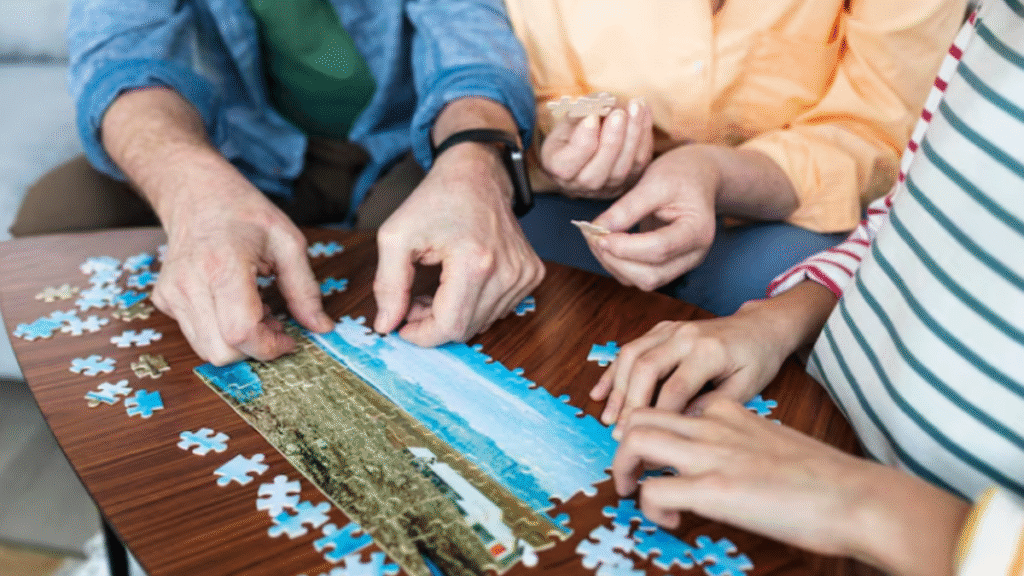In a world filled with digital distractions, humble jigsaw puzzles offer a powerful, screen-free way to engage our minds and connect with others. For anyone seeking a rewarding activity, from seasoned enthusiasts to families looking for a shared project, understanding the benefits is key. Many find that high-quality puzzles from dedicated creators provide a particularly satisfying experience. This guide explores the cognitive advantages of puzzling and offers practical tips for getting started.
Sharpening Your Mind and Memory
The act of piecing together a puzzle is a formidable workout for your brain. Engaging in activities that require using multiple cognitive functions is thought to help build cognitive reserve, the mind’s resistance to damage. When you sort pieces by color, pattern, and shape, you actively use and strengthen short-term memory and visual-spatial reasoning. This process of recalling shapes and colors to find their counterparts strengthens neural pathways and improves visual acuity. Each attempt to fit a piece is a small exercise in hypothesis testing, which refines problem-solving skills.
This process engages both logical and creative thought, stimulating multiple regions of the brain to work in concert. This full-brain engagement makes puzzling not just a pastime, but a valuable tool for maintaining cognitive health throughout life.
A Tool for Mindfulness and Stress Relief
Beyond the cognitive boost, puzzles provide significant mental wellness benefits. The focused attention required can induce a state similar to meditation, helping to lower stress and quiet anxious thoughts. By concentrating on a tangible task—finding the right fit—the mind is drawn away from cyclical worries. As you become absorbed in the process, your brain releases neurotransmitters associated with reward and pleasure, which can improve mood and concentration.
This is a form of single-tasking that offers a genuine escape. In a world that often demands multitasking, the single-minded focus of puzzling offers a rare and restorative break for an overstimulated brain. Many people experience a “flow state,” becoming so immersed that time seems to fade away. This leads to a profound sense of calm and accomplishment, offering a mental reset that few other activities can provide.
Fostering Connection and Family Bonds
One of the most overlooked benefits of jigsaw puzzles is their ability to bring people together. A puzzle spread out on a table becomes a quiet invitation for collaboration. Unlike competitive games, it’s a shared goal where every contribution matters, fostering a spirit of teamwork and patience. Thanks to the innovative projects by Zimad, puzzle lovers can now enjoy this shared experience anywhere – from phones to tablets – without losing the sense of quality or connection that makes puzzling so rewarding.
It creates a space for casual conversation to emerge naturally, strengthening relationships between partners, parents, and children. It also creates a unique opportunity for different generations to connect, sharing stories and working side-by-side toward a common achievement. The collective pride in finishing a challenging image builds lasting, positive memories.
Practical Tips for Puzzling Success
To get the most out of your puzzling experience, quality matters. Look for puzzles with thick, well-fitting pieces and a crisp, high-resolution image to avoid frustration. For those new to the hobby, here are a few practical tips:
- Start with the border: Assembling the edge pieces first creates a defined workspace.
- Sort by color: Grouping pieces into color families makes finding the right section much easier
- Focus on distinct patterns: Identify and assemble small, unique objects or textures within the image before tackling large areas like skies or water.







